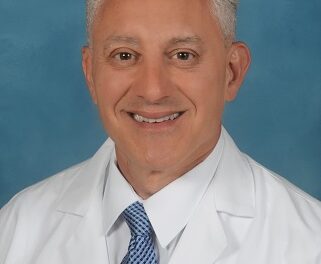 Career advancement in nursing often requires advanced degrees. Once a nurse earns an undergraduate degree and enters the workforce, however, it is often challenging to balance continuing education with work and family responsibilities. To enable practicing nurses to reach their ultimate educational and career goals, the Christine E. Lynn College of Nursing has introduced several new degree pathways and continuing education options.
Career advancement in nursing often requires advanced degrees. Once a nurse earns an undergraduate degree and enters the workforce, however, it is often challenging to balance continuing education with work and family responsibilities. To enable practicing nurses to reach their ultimate educational and career goals, the Christine E. Lynn College of Nursing has introduced several new degree pathways and continuing education options.
Dual Degree Programs
The Bachelor of Science/Master of Science (BS/MS) Dual Degree Program was created for the registered nurse with an associate degree who wants to prepare for earning an advanced degree as a nurse practitioner, nurse administrator, clinical nurse leader, or nurse educator. The program allows students to transition from the RN-BS program to the MS program seamlessly by taking MS-level courses earlier. Most students programs can be shortened by a semester. Each program is individualized to meet the students goals and the courses they have already completed are considered.
The Bachelor of Science in Nursing (BSN) to Doctor of Philosophy (PhD) Degree Program is for the Baccalaureate-prepared nurse who ultimately wants to earn a PhD. This program uses the support of a grant from the Quantum Foundation to hire additional faculty and to offer graduate stipends.
“Being immersed in the scholarly environment of the BSN-to-PhD program has rekindled my passion for nursing and opened my eyes to the seemingly endless possibilities available to me in the extraordinary profession of nursing,” said Lisa Marie Wands, BSN-to-PhD student. “The more I learn, the more I want to know.”
Clinical Nurse Leader Program
The Christine E. Lynn College of Nursings Clinical Nurse Leader (CNL) program is a groundbreaking masters-level track that equips nurses with advanced clinical assessment and leadership skills to help patients and their families move through todays complex continuum of care. Clinical nurse leaders direct the care team and integrate evidence-based practice into daily care to improve patient safety, health outcomes, and organizational systems. Graduates of the program are eligible to take a national certification exam to be eligible to use the CNL title.
The College of Nursing is collaborating with a number of South Florida health care organizations to meet their growing need for more highly educated bedside nurse leaders and to ease the widespread nursing shortage. One of the goals of the CNL program is to restore Caring to the health care environment.
“With all of the daily chaos and crises, its hard sometimes for nurses to focus on their relationships with their patients,” says Rose Sherman, Assistant Professor and Program Coordinator. “We encourage our CNL students to really think about what it means to change practice environments through Caring.”
CNL has driven improved patient outcomes at St. Lucie Medical Center.
In an effort to meet the health care needs of their communities, nursing administrators at St. Lucie Medical Center in Port St. Lucie, Fla. decided to redesign their nursing delivery model to provide quality care at the bedside. To achieve this goal, the hospital forged a historic partnership with the Clinical Nurse Leader program at the Christine E. Lynn College of Nursing in 2006. Three nurses from the hospital recently graduated from the program, and three more are slated to graduate in August 2008.
Administrators at St. Lucie Medical Center are noticing trends that indicate that the CNL may make a difference in important patient outcomes.
“We compared the fourth quarter of 2006 data to the first quarter of 2007,” says Nancy Hilton, chief nursing officer at St. Lucie Medical Center. “The incidence of pressure ulcers was down by half; patient falls declined by about 10 percent and our codes also decreased by about 10 percent.”
Doctor of Nursing Practice
Designed to prepare advanced practice nurses and administrators for practice leadership at the doctoral level, this new program will begin in fall 2008. The program is funded by a U.S. Department of Health and Human Services Health Resources and Services Administration grant and will focus on preparing graduates to design systems of care for a diverse and aging population.
Post Views: 674
 Career advancement in nursing often requires advanced degrees. Once a nurse earns an undergraduate degree and enters the workforce, however, it is often challenging to balance continuing education with work and family responsibilities. To enable practicing nurses to reach their ultimate educational and career goals, the Christine E. Lynn College of Nursing has introduced several new degree pathways and continuing education options.
Career advancement in nursing often requires advanced degrees. Once a nurse earns an undergraduate degree and enters the workforce, however, it is often challenging to balance continuing education with work and family responsibilities. To enable practicing nurses to reach their ultimate educational and career goals, the Christine E. Lynn College of Nursing has introduced several new degree pathways and continuing education options. 

























